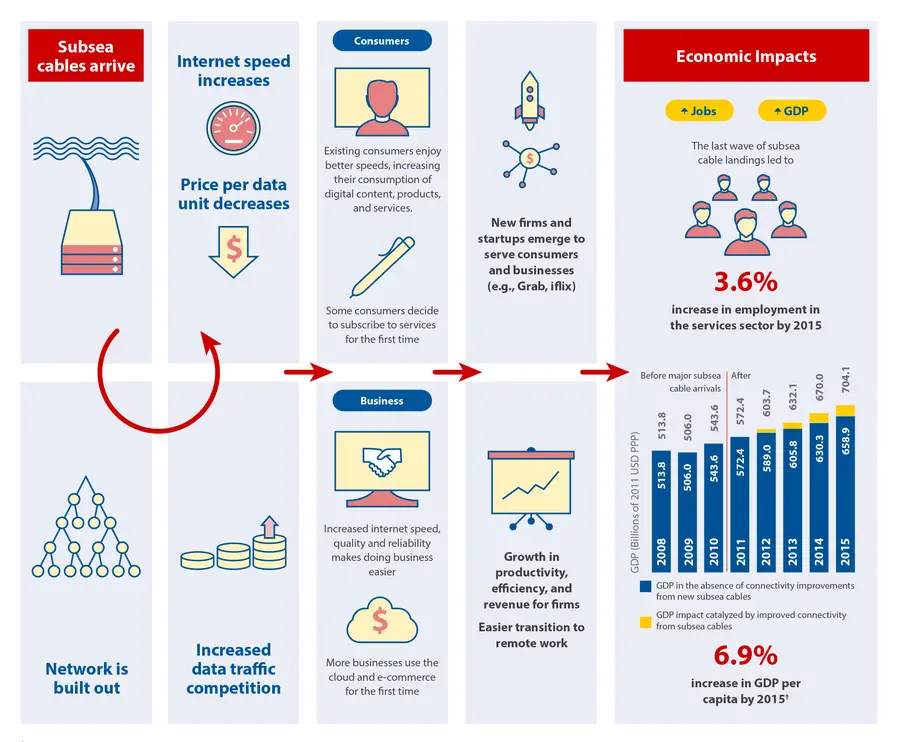Exploring how improved internet connectivity boosts economic development
The importance of high-quality, reliable internet connectivity and infrastructure is more apparent now than ever, as the heavier reliance on remote work and online communication during the COVID-19 pandemic drives a dramatic surge in global internet usage.
Malaysia, in particular, has seen large economic impacts from improvements in connectivity, especially from submarine fiber optic cables (subsea cables) that connect it to other countries around the world. Subsea cables are the global backbone of the internet, connecting people, businesses, and economies around the world.
Sponsored by Facebook, RTI paired advanced statistical methods with interviews with Malaysian telecommunications experts to study how subsea cables and broadband connectivity have generated economic growth there.
Focusing specifically on subsea cable landings beginning in 2009, we found that gross domestic product (GDP) per capita was 6.9 percent greater by 2015 than it otherwise would have been. We also found that, although there was no change in national employment levels, there was a shift toward services. More than 400,000 service-sector jobs replaced old-economy ones.
Relative to the number of new jobs, there is much greater economic output. This means that the connectivity delivered by subsea cables has translated into impressive growth in GDP per capita mostly by facilitating modernization and enhanced productivity in the Malaysian economy.

Final Report
We studied the economic impacts from subsea cables that arrived in Malaysia several years ago to understand how they changed the economy. The results show the large impact subsea cables have had.

